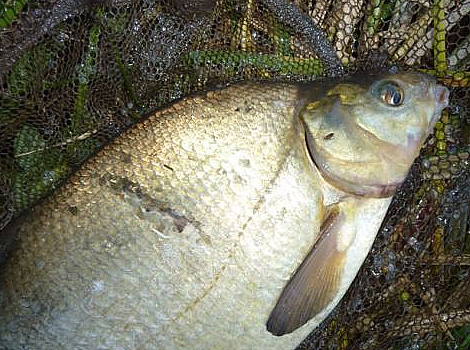The Angling Trust has just published a comprehensive 10,000 word report highlighting the damage done to fisheries and wild fish stocks in the UK as a result of a fifteen fold increase in cormorant numbers over the last 25 years.
The report includes a comprehensive case study on the decline of the Hampshire Avon as a fishery, technical data from recent Environment Agency surveys of fish stocks in a number of key catchments, alarming evidence on the impact of cormorants on the endangered eel population and case studies of unsustainable avian predation from across the country.
 We will be briefing MPs, fisheries Minister Richard Benyon has already been sent a copy and I firmly believe that this dossier will nail the nonsense that is trotted out from time to time that there is no evidence that cormorants present a serious, long term problem to fish stocks.
We will be briefing MPs, fisheries Minister Richard Benyon has already been sent a copy and I firmly believe that this dossier will nail the nonsense that is trotted out from time to time that there is no evidence that cormorants present a serious, long term problem to fish stocks.
You can download a copy of the dossier from our website HERE – just scroll down to the bottom and click on ‘Cormorants Impact Report’.
The government is shortly to respond to the recommendations of a special Defra review group which are expected to include proposals to reduce the current restrictions on cormorant licensing by Natural England. At the moment applicants have to go through a complicated and bureaucratic procedure that often results in a wholly inadequate outcome providing little protection for the fishery and is expensive for the taxpayer and rural businesses.
We are really hopeful of a positive announcement in the next couple of months from Richard Benyon. This is in part due to the thousands of Angling Trust ‘Action on Cormorants’ postcards that anglers have sent in to their MPs which have helped raise awareness of the plight of our silver fish stocks. We have also got over the message that cormorants do a huge amount of damage to fish far too big for them to eat just by slashing and stabbing.
Cormorant Impacts Report highlights
• The Angling Trust has been campaigning for nearly 3 years to change the licensing regime for the control of cormorants and goosanders. As part of this process, anglers have recorded nearly 70,000 sightings of these birds throughout the country in the past year at www.cormorantwatch.org.
• Cormorant numbers have increased since protection was introduced in 1981 via the European Wild Birds Directive. Numbers of over wintering birds, which traditionally were around 2,000 in the sixties and seventies, rose dramatically to 14,554 in 1987/8 and to a peak of 30,188 in the winter of 2003/4 – a doubling of numbers in 6 years and a staggering 15 fold increase in just over 20 years.
• The Environment Agency’s Eel Management Plans submitted to the European Commission under the Eel Regulation has made eels the most protected fish in Europe due to the collapse of their population numbers, yet the plan estimates of the number of eels consumed by cormorants in inland and estuarine waters in England and Wales to be between 29-43 tonnes.
• The number of over-wintering cormorants is currently estimated at 23,000. Each individual bird eats at least one pound of fish every day, which equates to 2,760,000lb of fish lost each winter.
• Numbers have increased by the influx of the migrant European sub-species Phalacrocorax carbo sinensis from mainland Europe.
• The biodiversity of our rivers and still waters is at serious risk from excessive predation from cormorants and goosanders whose numbers have exploded in the last two decades to unsustainable levels.
• Rivers and waterways are failing under the Water Framework Directive and of those failing more than 50% do so due to poor fish stocks. The Angling Trust and Fish Legal are pressing for concerted action on abstraction, pollution and habitat damage, but fish stocks need urgent protection NOW from predation.
• Cormorants and goosanders inflict serious injuries on fish too big for them to eat leaving them vulnerable to disease and death.
• Action is needed now to allow angling clubs and fishery owners to protect their fisheries better and there is a strong case for cormorants to be placed on the general licence giving them the same status as rooks, jays and magpies.
Reaction from some top names in Angling
Angling Trust Chief Executive Mark Lloyd:
“This ‘dossier of destruction’ is just a sample of the thousands of angling clubs, fisheries and rural businesses which have suffered damage from cormorants and goosanders destroying their fish stocks. I am very pleased that the Minister, and his team at Defra, have taken such a close and careful look at this problem and are identifying a range of options for responsible and protection of our nation’s freshwater fisheries from unsustainable predation. The Angling Trust will work with our members to ensure that the government’s chosen option is implemented responsibly and proportionately.”
Celebrity angler Chris Tarrant:
“Freshwater fisheries provide easy pickings for cormorants and they can drain a river system or lake of silver fish, in a matter of days. I was shocked how long it took to accept that research was proving time and again what a massive problem they were but we must give people whose livelihood depends on their fisheries a clear mandate to reduce the numbers of their local cormorant population”.
Film maker Hugh Miles:
“The cormorant is a silver fish killer unparalleled in nature whose numbers have increased to such an extent that the middle reaches of many rivers are now all but devoid of once common and sought after species such as roach and dace. Well balanced ecosystems need a healthy balance between predator and prey and we need action now to restore that vital balance and give our fish a chance.”
Hugh has written a really thoughtful piece on the need to ensure a proper balance between predator and prey HERE – and it’s well worth a read.

As anglers we know just how badly our vulnerable fish stocks in this country need better protection and we are hopeful that this time the politicians are listening. Thank you to everyone who has supported the campaign so far. We will keep you updated over these coming, crucial weeks.
This feature forms part of Martin’s Fighting for Fishing blog and is reproduced here on FishingMagic with his kind permission – but make sure you check out the site to keep up to date.










